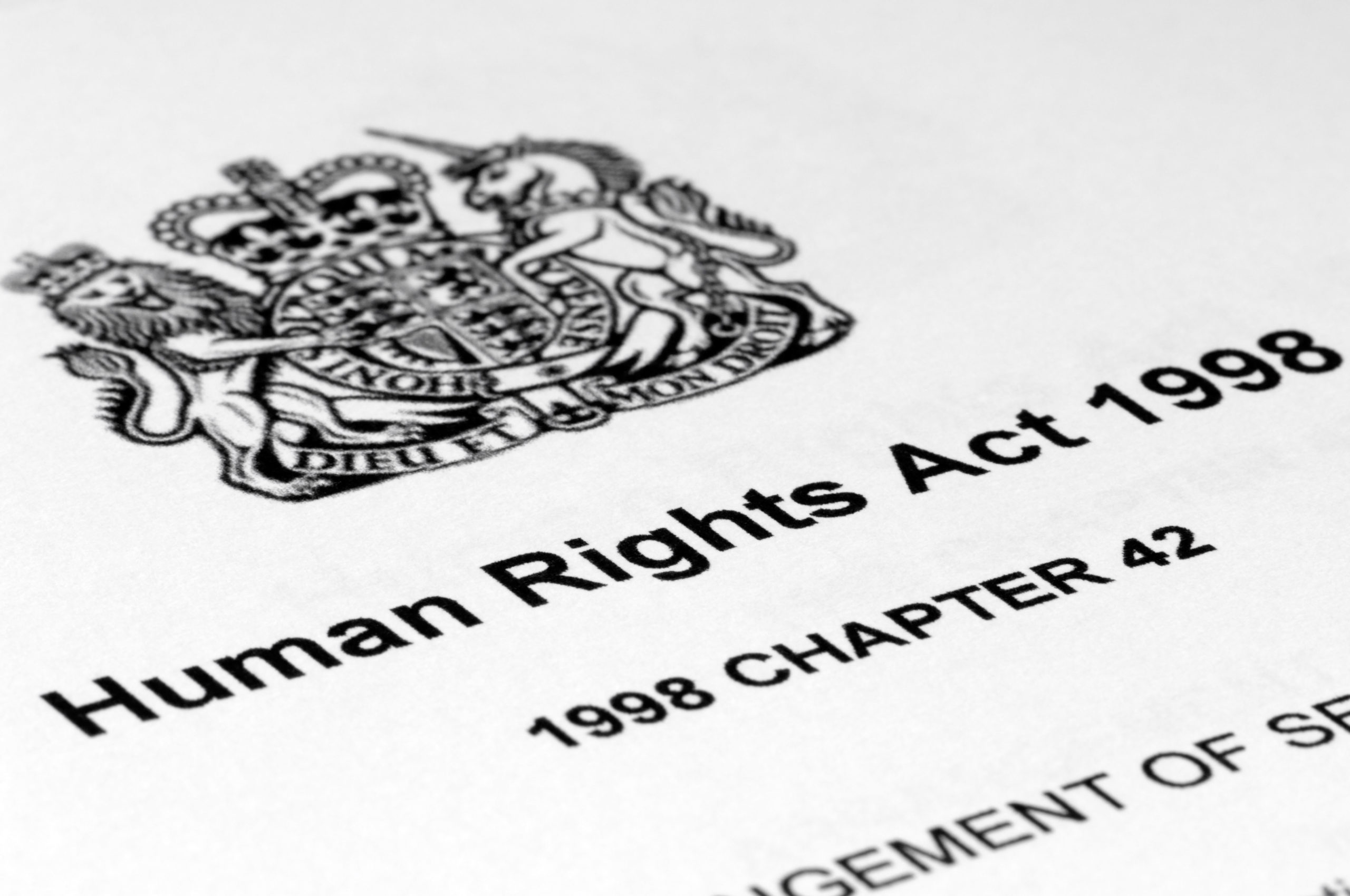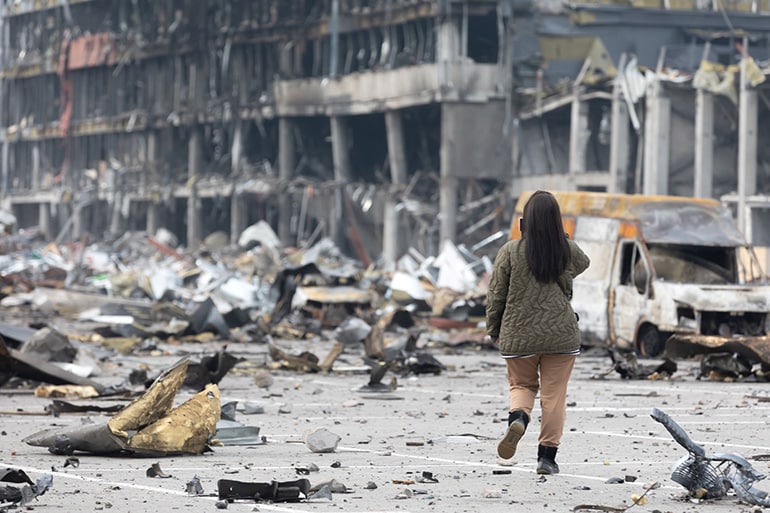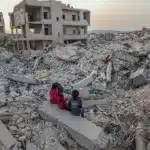CEASEFIRE participated in talks with delegates from over 65 countries at the Palais des Nations in Geneva in April focused on a political declaration on restricting the use of explosive weapons in populated areas (EWIPA).
Delegates from governments and civil society met for three days of discussions on the wording of the political declaration, with the news of Russia’s invasion of Ukraine and subsequent heavy bombardment of densely populated civilian neighbourhoods ever present. Civil society organisations reminded the conference that similar weapons and tactics had been used in many places in recent years, including Syria, Yemen, Iraq, Ethiopia, and Gaza.
Prior to the conference, CEASEFIRE published new research on siege warfare which examined the limits imposed by international humanitarian law (IHL) and human rights law on the conduct of sieges, and the role of the UK and other governments, armed forces, NATO, the UN, humanitarian actors and the civilian population itself in avoiding or minimising civilian harm.
What does EWIPA refer to?
Explosive weapons in populated area (EWIPA) refers to the use of a broad range of types of weapon that encompasses mines, rockets, air-dropped bombs, shells and IEDs. While many of these weapons have been used by militaries and non-state armed groups for decades, as warfare has moved from the battlefield to urban, populated environments, the risk to civilians has significantly increased.
Indeed, research by Action on Armed Violence has found that when explosive weapons are used in populated areas, over 90% of casualties are civilians.
What is the political declaration on EWIPA?
In 2019, Austria hosted the international Vienna Conference on Protecting Civilians in Urban Warfare. At the end of this conference, Ireland agreed to host a series of consultations aimed at developing a political declaration to address the humanitarian harm arising from the use of explosive weapons in populated areas.
While this is not a United Nations process, the EWIPA proceedings have been strongly backed by the UN, with the Secretary General calling on states to adopt a strong protocol. CEASEFIRE had previously attended talks held in Geneva in November 2019. Following on from the latest round of talks, Ireland will reflect on proposed changes to the draft text ahead of a final one-day consultation in early June.
What was discussed during these talks?
Following the declaration’s preamble, which describes the harm caused by EWIPA, the operative part focuses on the mechanisms, commitments and policies which will improve civilian protection.
Interventions given by states and civil society focused on whether the language used should be strengthened or softened. For example, a key discussion revolved around the wording of section 3.3:
Ensure that our armed forces adopt and implement a range of policies and practices to avoid civilian harm, including by restricting or refraining from the use of explosive weapons in populated areas, when the effects may be expected to extend beyond a military objective, in accordance with International Humanitarian Law.
Delegations from the International Network on Explosive Weapons (INEW) and the International Committee of the Red Cross (ICRC), as well as CEASEFIRE, believe that this statement should be strengthened to include a clear presumption against the use of explosive weapons with a wide impact area in populated areas. This agrees with the UN Secretary General that the text should be ‘to avoid the use of explosive weapons in populated areas’ rather than ‘restricting or refraining’ their use, which is a weaker commitment.
While some countries, such as Israel, the US, UK and Canada, stated that they could not support the draft declaration in its current form due to its strong language and their active militaries, many felt this round of discussions had been more hopeful than previous iterations. The Chair, Ambassador Michael Gaffey, noted at the end of the discussions that while “There are clearly differences of opinion, we have seen a very positive, solution-oriented approach.”
What was CEASEFIRE’s contribution?
CEASEFIRE’s Advocacy Officer, Lydia Day, spoke on the importance of investigating and tracking civilian casualties and data collection on civilian harm:
CEASEFIRE Centre for Civilian Rights believes that the current draft of the political declaration should be strengthened regarding both investigating and tracking civilian casualties and data collection on civilian harm.
While paragraph 4.2 is the most important section of the declaration operationally for data collection and tracking civilian casualties, we believe it is important that calls for a transparent, accountable, and strong approach to these issues run throughout the declaration. We have therefore collated our comments regarding this issue in this intervention.
CEASEFIRE welcomes the acknowledgement of the importance of tracking civilian casualties in military operations in the preamble in section 1.6.
However, we are concerned by the declaration’s lack of a corresponding commitment to this in section 3. We join with groups such as INEW in calling for this to be clarified in section 3. States should commit to investigating and tracking civilian harm in real time, including both casualties and harm to civilian objects. This would promote respect for the right of families to know the fate of their relatives, to enable states to better understand civilian harm and to shape operational approaches and policy regarding protection of civilians.
As detailed in a new report on protecting civilians in siege warfare published by CEASEFIRE last week, civilians in populated areas under attack will often be driven underground. Where there is a failure to investigate, civilian casualties may go unacknowledged and unrecorded.
CEASEFIRE is also concerned with section 4, specifically 4.2, regarding data collection and civilian harm. While we welcome the commitment to “collect, share and make publicly available disaggregated data, on the direct and reverberating effects on civilians”, we have four main recommendations on data collection.
Firstly, paragraph 4.2 retains the qualifier “where feasible and appropriate”. This caveat should be removed to reflect the strong imperative on states to collect data on civilian harm from explosive weapons.
Secondly, 4.2 should also clarify the type of data that should be included, including data on weapons types, incident locations, the circumstances under which weapons have been used, and information on explosive remnants of war. This would help monitor the differing impacts of explosive weapons and help improve civilian protection mechanisms.
Thirdly, the scope of the data collected needs to be expanded to include civilian objects, such as civilian property and infrastructure. Damage to civilian objects is a significant part of the reverberating effects of explosive weapons and should therefore be explicitly included.
Finally, civilians on the ground provide an essential source of data that requires to be taken into account. The declaration should acknowledge the important contribution of local civil society sources to data collection on civilian harm.
CEASEFIRE believes that these recommendations of committing to real-time investigation and tracking of civilian harm, expanding the scope of the data collected on civilian harm, and increasing data transparency would operationally strengthen the declaration. This would help promote compliance with international law and improve the protection of civilians.
The issues mentioned by CEASEFIRE here were also discussed by states. While the UK acknowledged the importance of tracking civilian casualties and the moral duty to do so, they argued that the requirements in the current draft are unrealistic, a sentiment echoed by the US. However, there was a loud call from other states, civil society delegates and parliamentary representatives such as Stewart McDonald MP to further strengthen the declaration regarding investigations, civilian casualty tracking and data collection.























